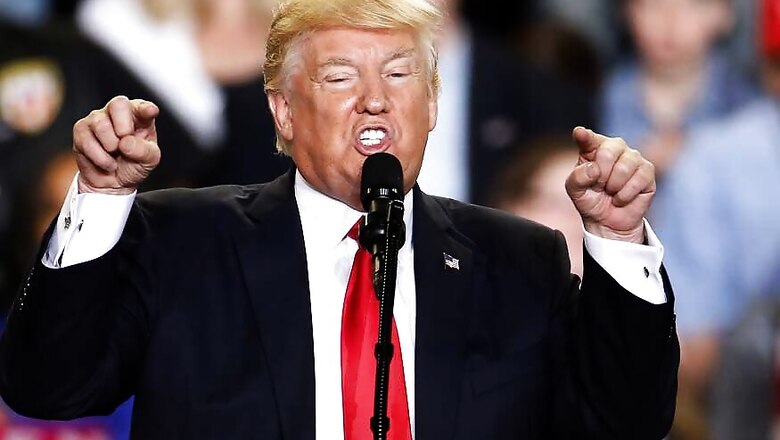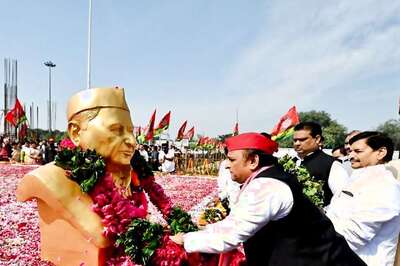
views
Donald Trump looks determined to turn his back on a tradition believed to have been started by Thomas Jefferson, a founding father and the third President of the United States of America.
In 1805, Sidi Soliman Mellimelli, a Tunisian envoy to the US, was to pay a visit to the White House. The visit fell in the holy month of Ramzan. Jefferson arranged for a sunset dinner, acknowledging Mellimelli's religious beliefs. The debate whether or not Jefferson held this dinner as "Iftar" - the meal with which Muslims break their fast after sunset - still rages.
Iftar, this one in particular, grabbed the eyeballs once again in 2010 when the then US President Barack Obama alluded to the story. Obama claimed the tradition went back in time, adding that Jefferson had hosted "the first known Iftar at the White House, more than 200 years ago".
However, Obama was not the one to have revived this tradition at the Oval Office. The credit goes to the Clintons who hosted 150 Muslims in the February of 1996. The occasion was Eid-ul-Fitr, the culmination of the holy month of Ramzan.
"It is only fitting. Just as children and families of other faiths have come here to celebrate some of their holy days, so you too are all here to mark this important Islamic tradition," the then first lady, Hillary Clinton, had said.
The White House had long had the tradition of celebrating Easter and Christmas. Hillary called the Eid-ul-Fitr celebrations “historic and overdue", aiming at accommodating the Muslim-American community.
Fast forward to 2016, even as Hillary was battling Donald Trump for the Presidency, President Obama, in his last year, held a reception on Eid-ul-Fitr. There was a lot at stake. The would-be President Donald Trump, to frenetic cheers and applause, was rooting for a "total and complete shutdown on Muslims entering the US".
Obama, on the other hand, sought to instil confidence in the same Muslim community. "And whether your family has been here for generations or you’re a new arrival, you’re an essential part of the fabric of our country," Obama said at the reception.
Six months into his presidency, Trump, who trenchantly criticised Islam "for hating us" and "having tremendous hatred", has twice tried to bar Muslims from seven Mulsim-majority countries from entering the US.
Breaking from the tradition that even much-disliked George W. Bush didn't, the Trump administration is not hosting the annual White House Iftar this year. The holy month of Ramzan is nearing the end, and there is no communication from Trump's office as yet.
But given Trump's past, deluged with anti-Muslim, anti-immigrant statements, his disapproval of even a "symbolic gesture" serves his constituency. As much as the Clintons and Obamas were accused of "political symbolism" behind such celebrations, Trump's decision is also emblematic of his politics.
The intention behind any symbolic political ploy is to establish an emotional connect with a politician's core constituency.




















Comments
0 comment